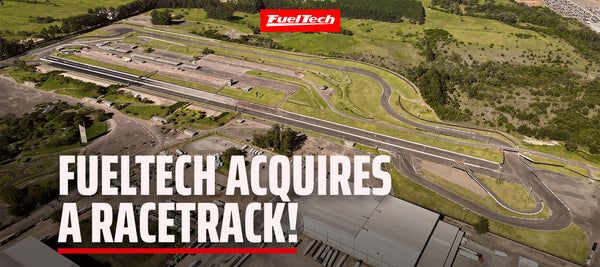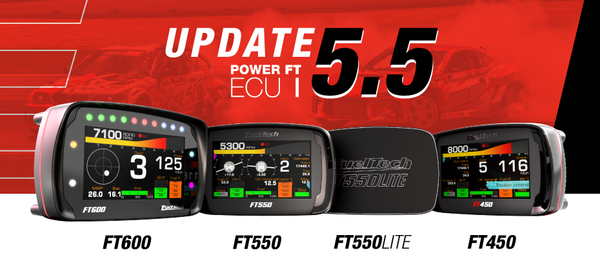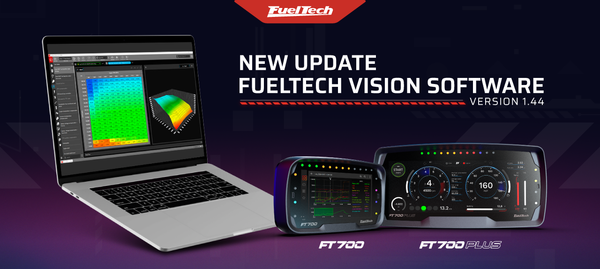Top of the Rock—Tom McGilton Wins Rocky Mountain Race Week!
Endurance streetcar events are sprouting up across the United States and the quickest growing competition is the Rocky Mountain Race Week. The event features five drag strips as it begins at Bandimere Speedway in Denver, Colorado moves to Kearney Raceway (Kearnney, Nebraska), then over to Great Bend, Kansas for the SRCA Night Race and Pueblo Motorsports Park (Pueblo, Colorado). Six days later the tour loops back to the place where it started at Bandimere Speedway. The street cruises are grueling; requiring dedicated “drive-only” days as the competitors rack up nearly 2,000 miles. Tom McGilton and his 2013 Chevy ZL1 Camaro secured this year’s Pro Street win and the overall quickest average.

Photo Credit: CWR Media
McGilton’s ZL1 Camaro brings the Pro Street term to an entirely new level, boasting mid-7 second runs and nearly 200 mph performances. Sure, there have been quicker Pro Street cars, but McGilton’s Chevy is much more “street” than it is “pro” when you break down the build. Adding the Rocky Mountain Race Week title to the car’s pedigree further qualifies its position as a Pro Street car that legitimately performs.
2013 ZL1 Camaro built by Larson Race Cars!
Larson Race Cars is responsible for building the vehicle in 2014 and it began with a brand-new 2013 ZL1 Camaro, which showed up to the shop with the new car smell. McGilton gave Larry Larson and his crew strict marching orders. The ZL1 Camaro had to retain the creature comforts like air conditioning and the cage had to be tucked up tight to the body so the passengers could enjoy their personal space while cruising down the road or making jumps down the quarter-mile.

The rear sub-frame was removed, and Larson fabricated a back-half style chassis, complete with an SFI 25.3 cage to be legal for 6s/200 mph performances. Crammed under the hood is a 540ci big-block Chevy that features all the right goodies to crank out 3,000hp. The team began with a CFE aluminum block and slipped in a Callies billet crankshaft, Oliver billet connecting rods, and custom Diamond pistons. Moving topside the team kept with the CFE brand by turning to its BMF 405 aluminum cylinder heads and custom sheetmetal intake manifold.

Valvetrain durability is vital in endurance streetcar events like Rocky Mountain Race Week and Hot Rod Magazine Drag Week. McGilton took that notion seriously as Pro Line Racing’s Steve Petty was tasked with spec’ing the camshaft. The lifters and rocker arms came from Jesel. The engine receives unnatural aspiration thanks to a pair of Precision Pro Mod 88mm turbochargers. A massive front-mounted, custom air-to-water intercooler chills the boost before it is crammed into the big-block engine. An Aeromotive mechanical fuel pump supplies the high-octane race gas.

FuelTech FT600 EFI System on-board!
Fans of FuelTech’s social media channels might recognize this car as it was run on the in-house Mainline hub dyno. The vehicle cranked out 3,000hp with relative ease and it relies on a full line-up of FuelTech products to keep it in good running order. A FuelTech FT600 was selected as the engine management system for several reasons. The streetcar antics requires ultimate power control and the ability to operate a large amount on-board systems.
The integration of several power management features also made the system attractive, like the Boost Controller and GearSelector. Those aren’t the only standard systems in the FT-series ECUs, which also include sequential injection and ignition, O2 closed loop, Data Logger, Delay Box, and for the chemically enhanced combinations, the Nitrous Controller. An FTSPARK has been installed in the ZL1 Camaro to ensure the boosted air and large volumes of race fuel are lit off in the combustion chamber without any trouble. The FTSPARK features 600mj of energy and proven to be reliable in combinations that produce more than 5,000hp.
As the racing season re-launches after the COVID-19 pandemic, expect to see more FuelTech-equipped vehicles crushing records and winning races on and off the streets.
#FuelTechEverywhere
Also in FuelTech Blog

FuelTech Acquires Velopark Racetrack, Ushering In a New Era of Brazilian Motorsports

FuelTech FTManager Update 5.5 | PowerFT ECU





